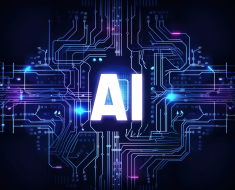Artificial Intelligence
AdobeStock_323829966
Today, 33% of U.S. adults reported they have never heard about ChatGPT, according to a Prosper Insights & Analytics survey, despite the widespread artificial intelligence (AI) phenomenon nationwide.
Prosper – Heard of ChatGBT
Prosper Insights & Analytics
I had the privilege of meeting with Dr. Michelle Zhou, the CEO and co-founder of Juji, a cognitive AI startup, and a distinguished member of ACM, and the previous Editor-in-Chief of ACM Transactions on Interactive Intelligent Systems. Our discussion delved into the intricacies of AI, including cognitive AI, the advantages of integrating it into various work streams across industries, and how imperative it is for society to use AI responsibly as it continues to evolve.
Gary Drenik: How does cognitive AI distinguish itself from generative AI?
Dr. Michelle Zhou: The landscape of AI is constantly evolving, with what seems to be new advancements daily. Lately, recent conversations have centered on cognitive AI. While generative AI mainly focuses on teaching machines language skills, cognitive AI educates machines with advanced human soft skills, such as active listening, reading between the lines, and problem solving. Cognitive AI enables machines to be true human teammates.
The future of AI is a world with cognitive AI agents similar to Samantha in the movie Her but a much more empathetic and responsible “Her”. Those “Hers” can automate high-touch, high-value services that have never been done before, aiding humans in making informed and important life decisions based on their individual needs and characteristics. For example, your Her will know you better than you know yourself, including your passions, interests, and talents by interacting with you and analyzing your communication behavior to guide you to plan for a career change that would better align with your interests and talents, beyond what generative AI is doing.
Drenik: Can you share examples of the application of cognitive AI agents across various industries, highlighting its impact and significance?
Zhou: I’d be happy to. Cognitive AI has been adopted by multiple industries, notably the industries that provide essential human services or human wellbeing services, such as education, HR, and healthcare sectors.
Specifically, in the education sector, the University of Arizona utilizes a cognitive AI agent, Catbot , to engage with prospective students and guide them to explore programs aligned with their interests and strengths, which were identified by Catbot during the conversation.
In the HR space, cognitive AI agents can be used to interview potential candidates and references alike and analyze their personality traits during the interviews to assess the fit of candidates and job roles or the fit of the references (e.g., how unbiased and truthful the references are). For example, my company, Juji, used AI in our internship hiring process, and the results were phenomenal. Not only have we shortened the first-round of the application reviewing process from 2 weeks to 2.5 hours, but the AI agent also helped us find more diverse and better matched candidates. Although humans are still and perhaps will always be the ultimate decision makers in a talent selection process, cognitive AI agents can act as strategic assistants to facilitate human decision making and make the process much more inclusive, effective, and efficient.
Finally, the healthcare sector can utilize cognitive AI agents to enhance patient engagement, which in turn helps improve patient experience and outcomes. For example, LooperRoom, a mental wellness company, adopts a Juji cognitive AI agent to go beyond answering the patient’s questions about their recent diagnosis or treatment options and instead partake in empathetic dialogue and help patients monitor and maintain their mental wellbeing. In general, through their interaction with patients, cognitive AI agents can infer each patient’s personality and deliver medical information or care instructions tailored to the patient’s background and personality, which makes it easier for the patient to comprehend and adhere to care instructions.
Drenik: In light of President Biden’s executive order on AI, which emphasizes the need for the responsible deployment and utilization of AI, could you share examples of how your company is proactively adhering to the guidance?
Zhou: Generative AI is far from perfect, and it hallucinates from time to time by generating erroneous responses. As a measure to protect the public, the executive order requires any generative AI applications to explicitly inform users of AI-generated responses. This is essential as more and more U.S. adults are using AI chatbots in various applications. For example, 22% of adults who use ChatGPT use it for educational initiatives.
Prosper – Use ChatGPT for Education
Prosper Insights & Analytics
During this same time period 14.5% of adults use AI chatbots for banking and financial tasks, and 12.5% of adults use AI chatbots for healthcare matters, according to a recent Prosper Insights & Analytics survey. Way before the existence of the executive order, Juji has already put guardrails around AI-generated responses by explicating informing users of which AI-delivered content is retrieved from human curated data, generated from proprietary data, or generated from public data (e.g., GPT). Additionally, Juji provides human AI supervisors with auditing capabilities to audit AI-generated content before and during conversations and amend such content as needed to improve the quality and authenticity of AI responses.
Drenik: In which sectors do you foresee the most substantial advantages arising from the integration of cognitive AI agents into workflows?
Zhou: As highlighted previously, the industries that provide essential human services, such as education and healthcare sectors, have benefited from adopting cognitive AI agents and will continue to reap the significant benefits of AI well into the future. This is because essential human services are typically high-touch and high-value services, which are very difficult to scale without the help of powerful AI like cognitive AI agents.
Integrating AI into workflows of any high-touch services not only helps scale out such services, but the human-AI-human collaboration also elevates customer and employee satisfaction. While the end users can afford hyper-personalized “concierge” services 24×7, employees can devote their time to more meaningful tasks in the workflow.
Drenik: As the field of AI continues evolving, what proactive steps can individuals take to be at the forefront of these advancements?
Zhou: AI will be here to stay and evolve with the human race. In fact, 17% of U.S. adults are not concerned at all about AI developments being harmful to society, according to a recent Prosper Insights & Analytics survey. As individuals, empowering ourselves with essential skills to master AI and become AI supervisors is utterly important. This includes learning about how to incorporate AI into everyday workflow and learning various AI supervision skills. Similar to having computer skills, having AI supervision skills is to teach, refine, and manage AI to do what you want AI to do and accomplish your goals.
Drenik: Thank you, Dr. Zhou, for sharing your insights on the evolving AI landscape and the emergence of cognitive AI agents across industries. We appreciate your time here today.
Check out my website.





